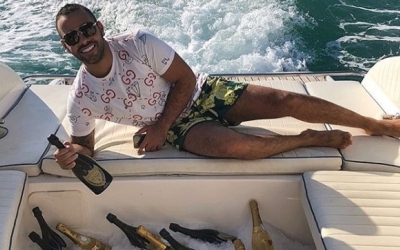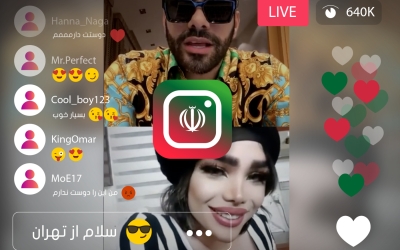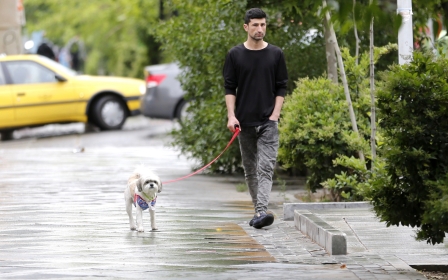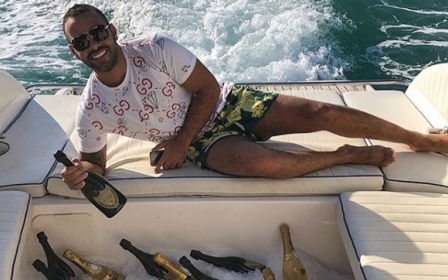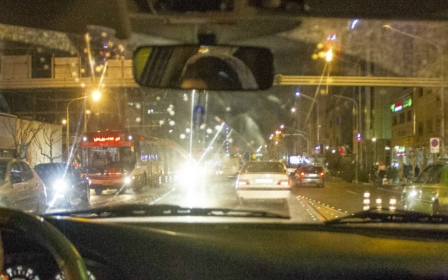Iran sees plastic surgery boom during Covid-19 pandemic
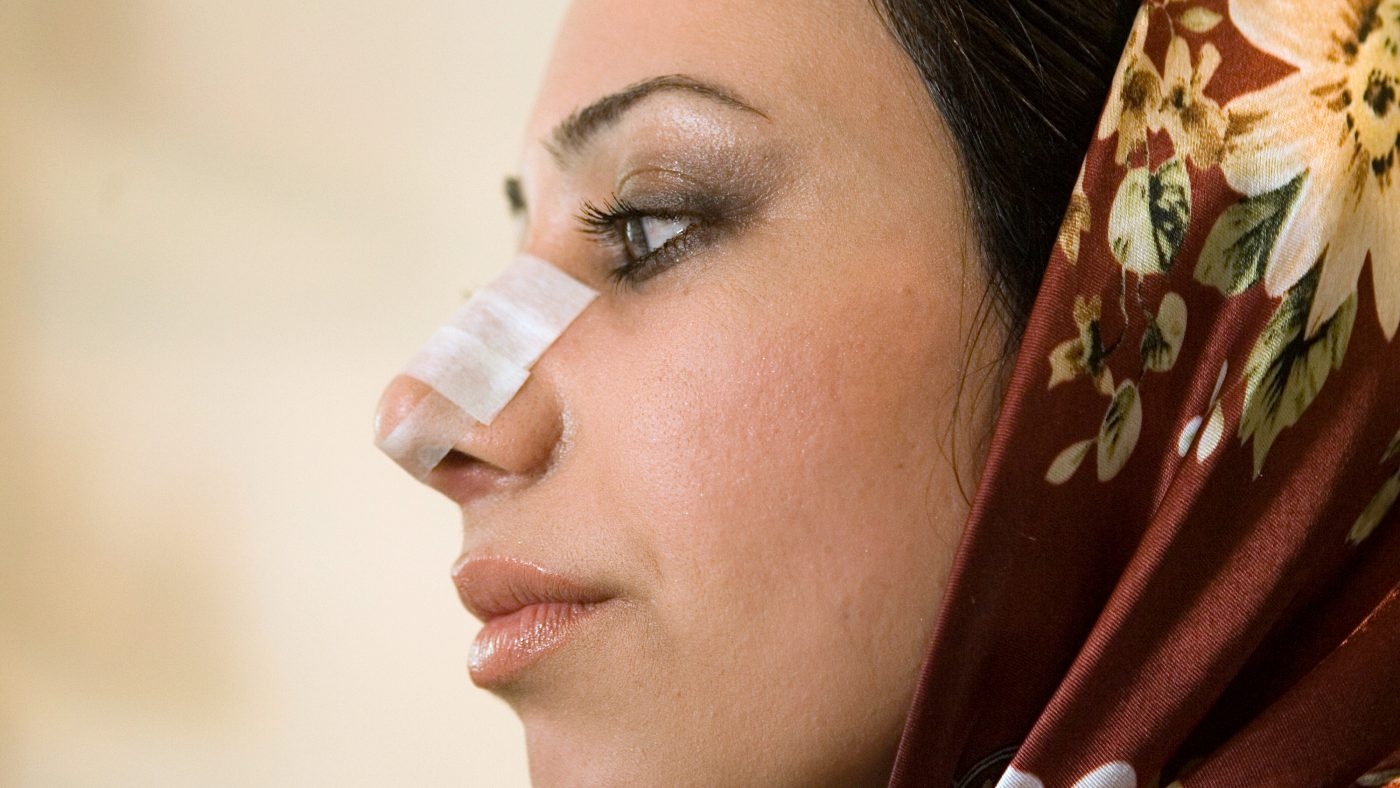
Assal, 21, has long been obsessed with her nose, but, until recently, she felt too self-conscious about other people's judgement to do anything about it.
"I wanted to remove the bump on my nose for quite a long time, but I was always afraid of surgery, particularly because I did not want my colleagues at work to find out," she told Middle East Eye, a bandage splayed across the feature in question.
New MEE newsletter: Jerusalem Dispatch
Sign up to get the latest insights and analysis on Israel-Palestine, alongside Turkey Unpacked and other MEE newsletters
"Under the pandemic restrictions, we were working from home. That's why I decided to seize the opportunity and get the job done. Although it is early to say, I think my nose looks more beautiful now than before."
Assal is one of many people in Iran who have undergone plastic surgery since the beginning of the Covid-19 pandemic, with a number of reports over the past year speaking of an unlikely cosmetic surgery boom.
Plastic surgery has been extremely popular with young people in Iran for decades. Since the outbreak of Covid-19, however, the trend has gained serious momentum, and an increasing number of Iranians are showing interest in changing the way they look, despite the very real risks.
Increased interest
"After the outbreak of the Covid-19 pandemic, the fact that a large number of government employees no longer need to be physically present at their workplace, with universities and schools closed, as well as the fact that many people had more free time, led to an increase in the desire for cosmetic surgery," Mohammad Alipour, a doctor specialising in plastic and cosmetic surgery, told ISNA news agency in March.
More than six months later, doctors say that the numbers are still on the rise.
"In recent months, the number of patients who have come to my clinic and those of colleagues asking for cosmetic surgery has increased significantly," Ali Ataei, an ears, nose and throat (ENT) specialist, told MEE.
"In the early months of the pandemic, when many cosmetic surgery clinics were closed, we did not do surgeries, but some fellow doctors performed them in their own clinics secretly," Ataei added.
The most common cosmetic surgery performed in Iran is rhinoplasty (nose jobs). However, other types of plastic surgeries are growing in popularity, such as breast enhancement, eyebrow and eyelid lifts, and reconstructive surgeries such as body contouring procedures.
Body contouring, or body sculpting, is a kind of plastic surgery that aims to reshape parts of the body. It can involve the removal of fat, the reinjection of it in a different part of the body, and bone shaving.
Elnaz, 26, recently had breast enhancement surgery. "I was always unhappy with the size of my breasts, and, because of their small size, many of the women's dresses suitable for parties did not fit well on me," she told MEE.
Working as a secretary for a business, she decided to go through with the procedure during the pandemic.
"Because of remote working, my job was reduced to almost zero, and I did not have much to do except prepare letters and send some company emails. That's why I decided to get it done," she said.
A plastic surgeon, who wished to remain anonymous, explained to MEE why cosmetic surgery holds such appeal in Iran.
"Society's attention to physical appearance and how you look has become much more prevalent than before, and this problem has only gotten bigger during the coronavirus pandemic," the surgeon said.
"Perhaps the main reasons for this should be studied by psychologists. However, I think the boredom resulting from long periods of isolation at home, along with the longstanding desire to look more beautiful, have made people interested in such surgeries."
Risky business
There is a darker side to the plastic surgery boom.
"The number of cosmetic surgeries in Iran seems to be higher than the global average," Babak Salahshour, an official with the Legal Medicine Organisation of Iran, said on 27 October.
"The same issue has led to an increase in the number of complaints [indictments] in the field of beauty recently, and many people are dissatisfied with the results of their surgeries and have made complaints against doctors."
'If the person who is doing the surgery does not have expertise in the profession, the patient may lose their life'
- Plastic surgeon in Tehran
While Salahshour did not provide more details on how many legal complaints had been made against plastic surgeons, the increase in demand has been accompanied by a rise in procedures carried out cheaply by people lacking the necessary surgical expertise or qualifications.
"Unfortunately, many people who are not specialised fool people with Instagram ads and lure them into their businesses by offering discounts, despite the fact that they may endanger their health," a plastic surgeon in Tehran, who also requested not to be named, told MEE.
"The issue of qualified clinics and anaesthesia are not a joke," the surgeon added. "If the person who is doing the surgery does not have expertise in the profession, the patient may lose their life."
The increase in the amount of plastic surgery has also come as a surprise to many, as the Iranian economy has been shattered under foreign sanctions, and many in the country struggle to make ends meet.
The Iranian rial continues to depreciate against the US dollar, with inflation hitting a new record high each month. For those who may still be tempted by plastic surgery, the allure of cheaper procedures is strong - but potentially fatal.
Niloufar, 31, said she had planned to have liposuction, but changed her mind after witnessing what happened to a relative.
"My cousin, who was 40 years old and had two children, decided to have surgery to remove wrinkles on her abdomen," she told MEE. "Although she performed this operation in a specialised and completely professional clinic, she never regained consciousness after the surgery," following an issue with anaesthesia.
"Four months later, my cousin is still in a coma," Niloufar said. "She is neither dead nor alive. Doctors say she will not return to life."
This article is available in French on Middle East Eye French edition.
Middle East Eye delivers independent and unrivalled coverage and analysis of the Middle East, North Africa and beyond. To learn more about republishing this content and the associated fees, please fill out this form. More about MEE can be found here.


